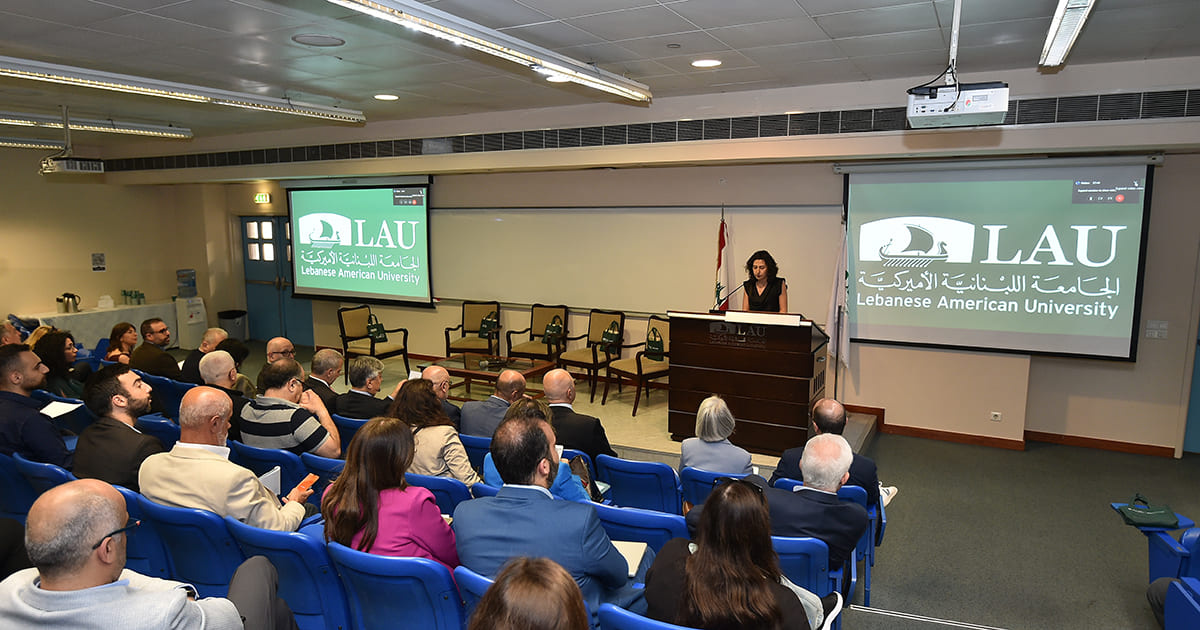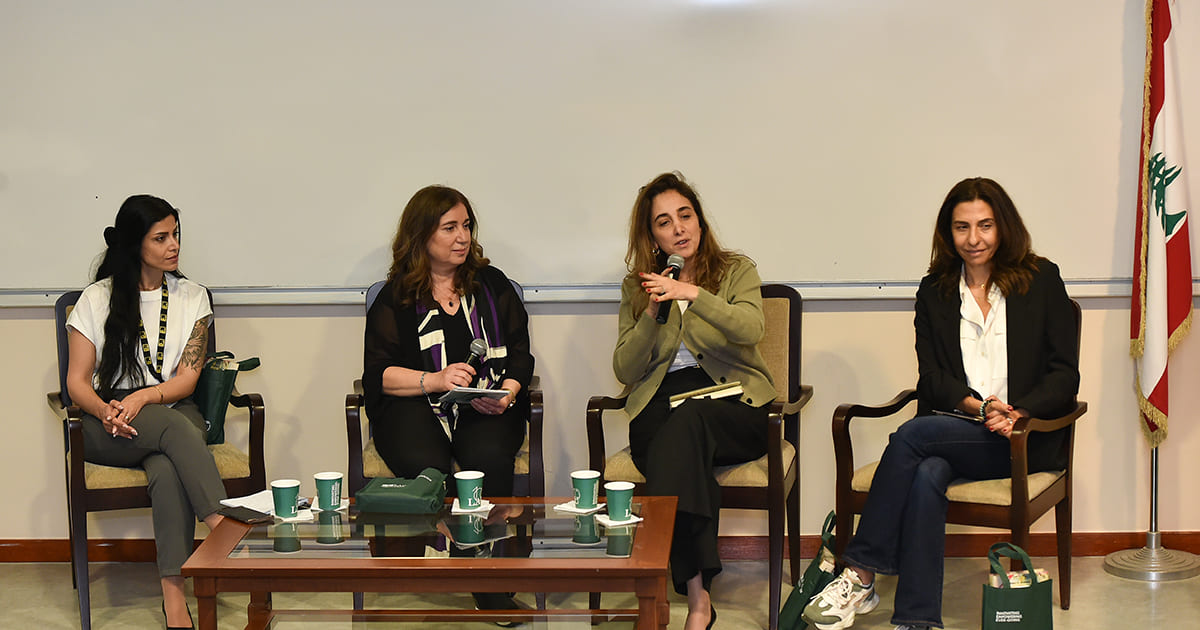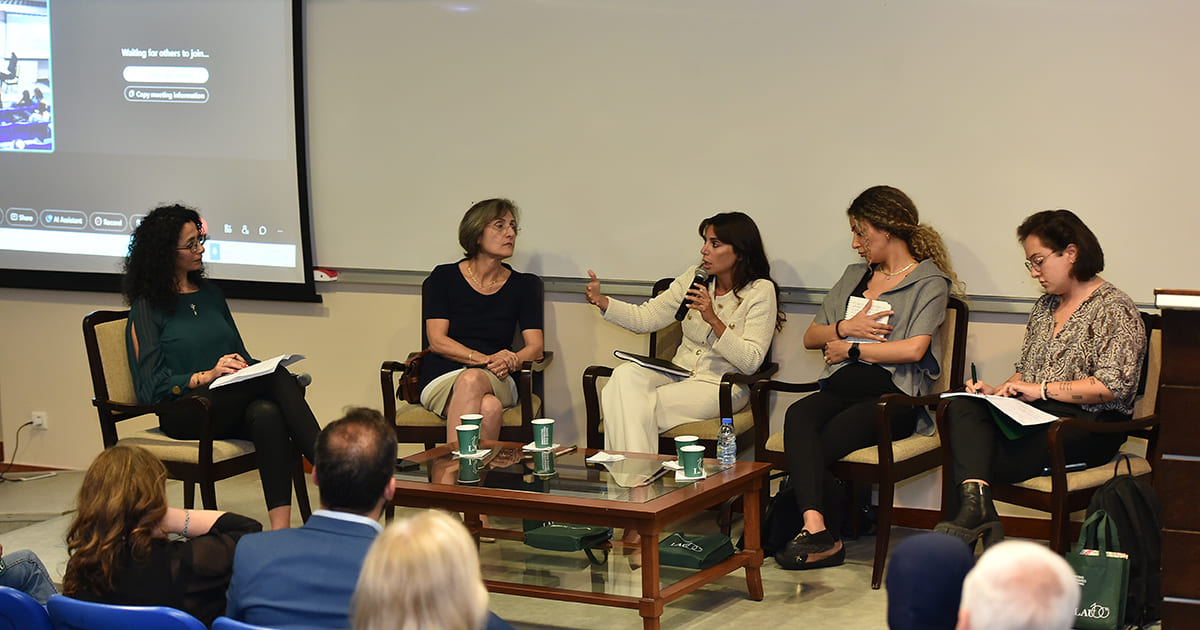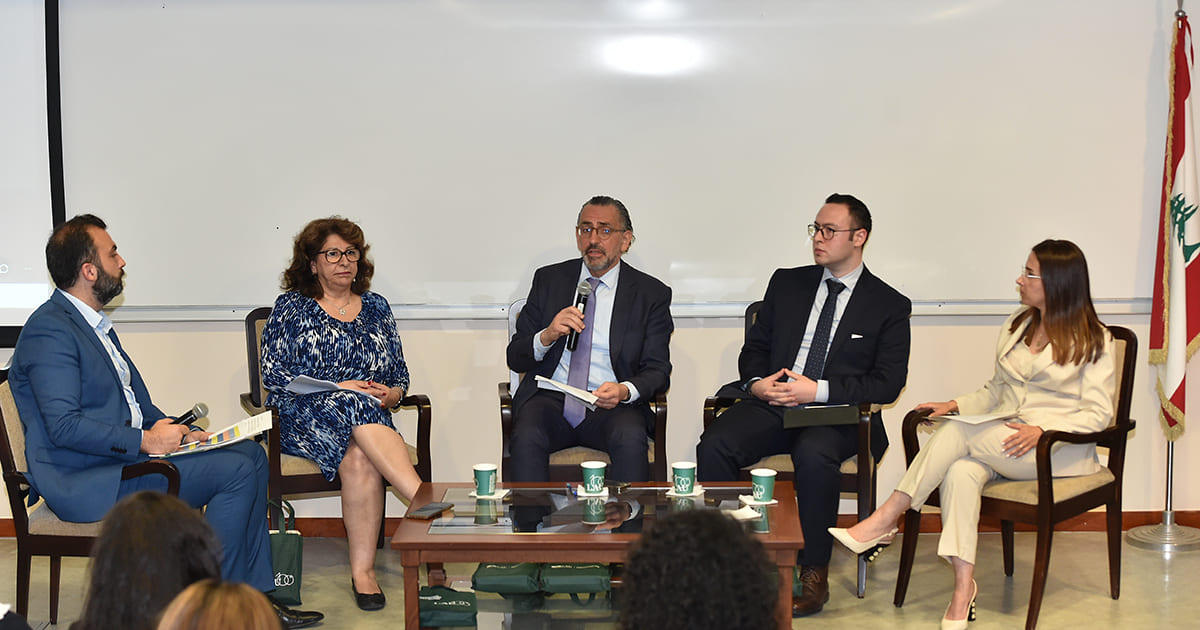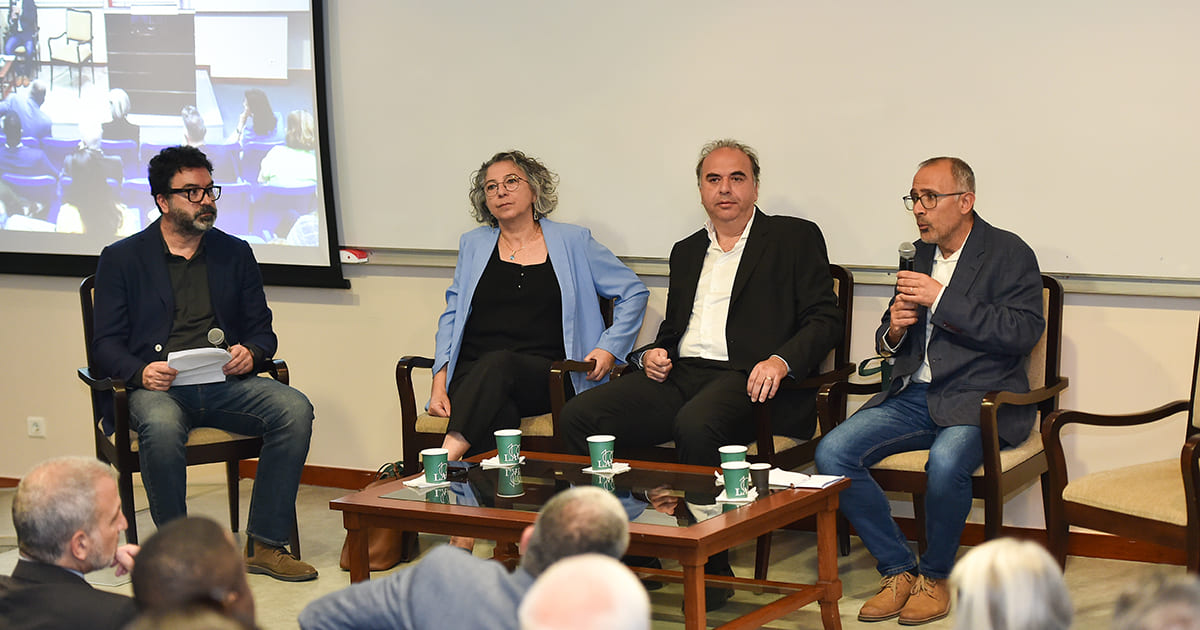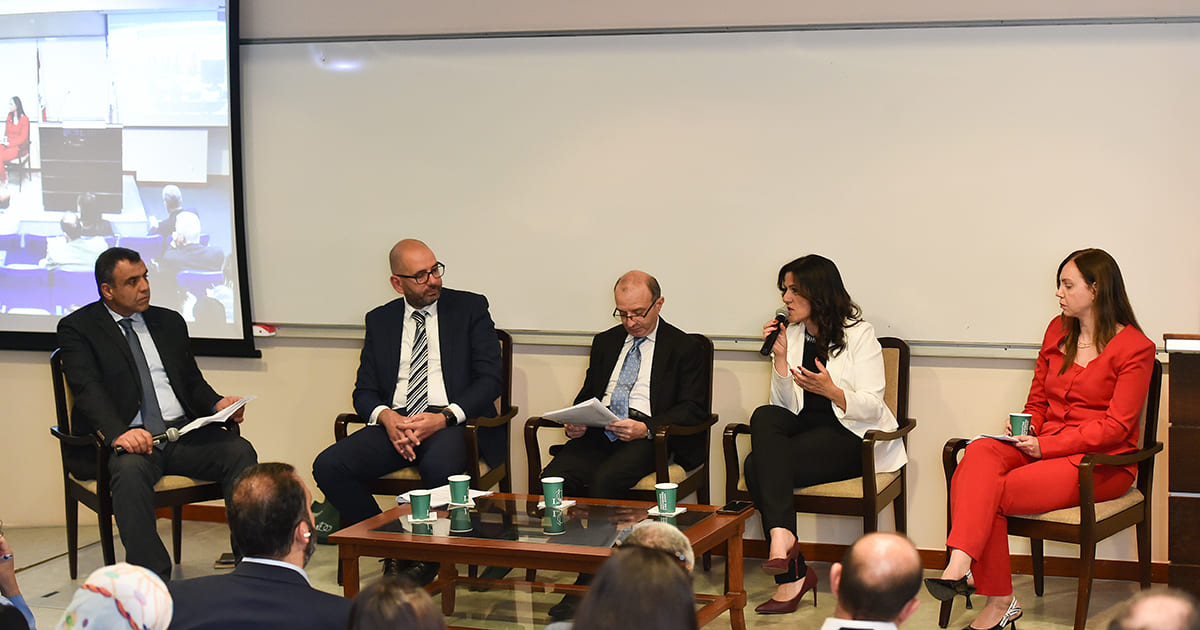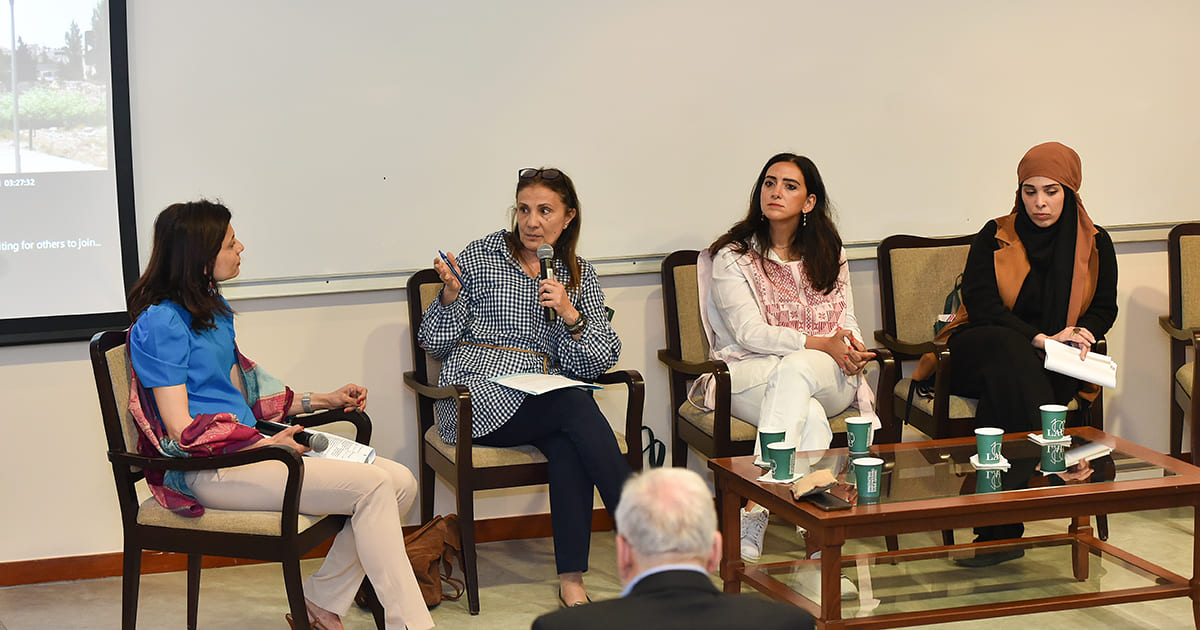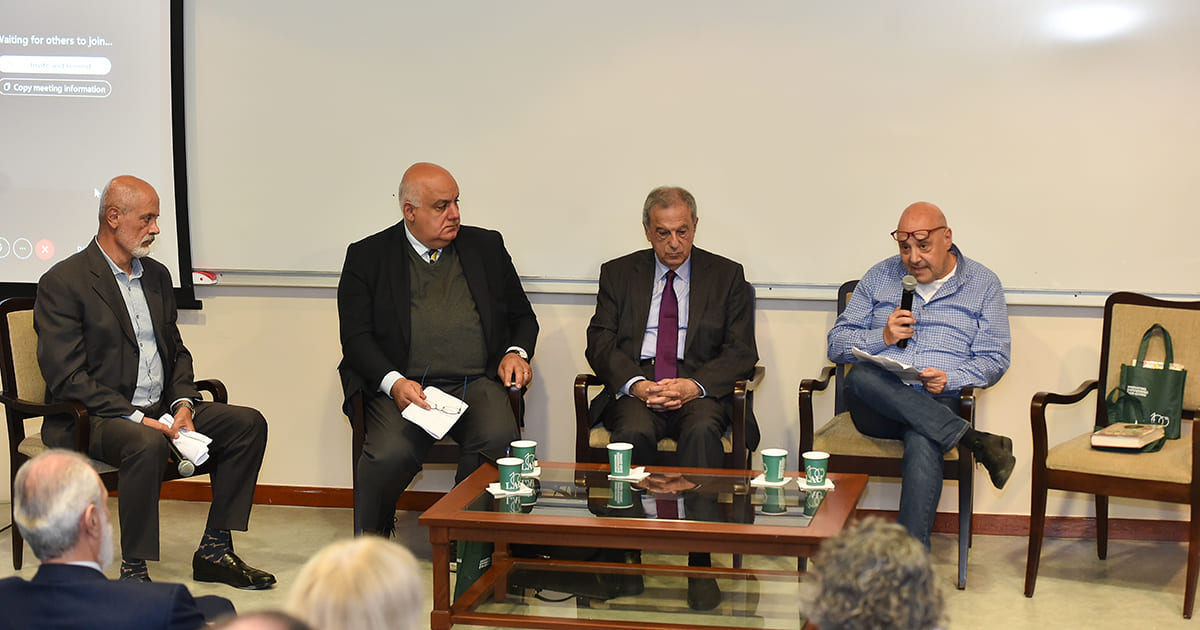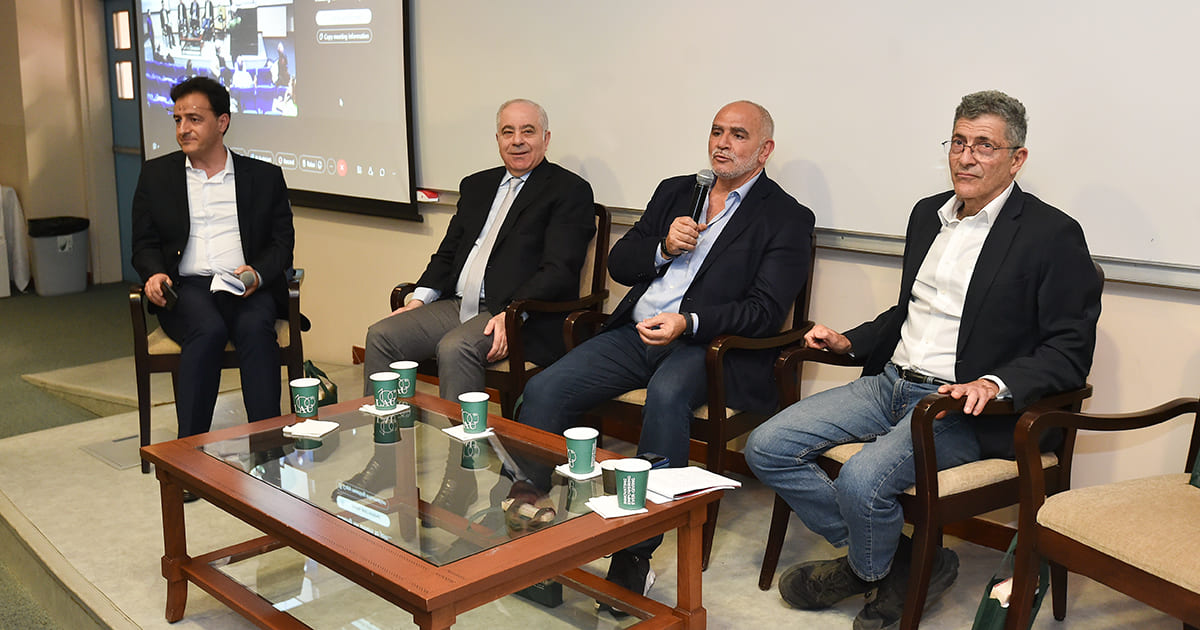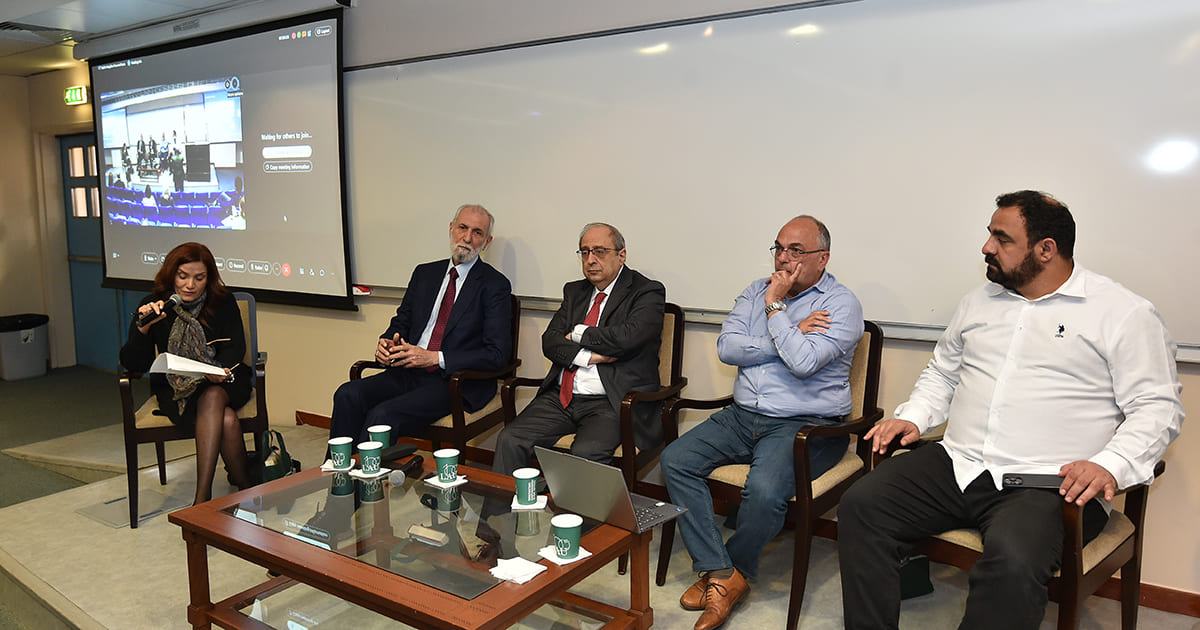Beyond the Rubble: Healing, Rebuilding, and Reimagining Post-War Lebanon
Building on the current political momentum for reform, LAU’s Sustainability Office spearheads an intersectional conference to offer informed, data-driven recommendations on the overlooked impacts of war.
Beyond the immediate and visible devastation of the 2024 war on Lebanon lies a deeper, intersectional crisis—humanitarian, social, environmental, and economic consequences that threaten the country’s long-term resilience, stability, and capacity to recover.
In the spirit of promoting a transformative recovery—one that goes beyond rebuilding structures to reimagining systems that are stronger, more equitable, and better prepared for future challenges—the LAU Office of Sustainability held a two-day conference titled War’s Silent Victims: Hidden Impacts of the 2024 War on Lebanon on April 28 and 29 at the Beirut campus.
Through collaboration and dialogue delivered by a rich and diverse sustainability coalition of thought leaders, researchers, and relief agencies, the conference embodied the kind of responsible, forward-looking leadership Lebanon urgently needs.
Panelists shared key findings, insights, and actionable recommendations on often-overlooked issues in times of war, ranging from gender-based violence and heritage loss to mental health challenges, policy gaps, inadequate data utilization, disaster unpreparedness, and environmental degradation.
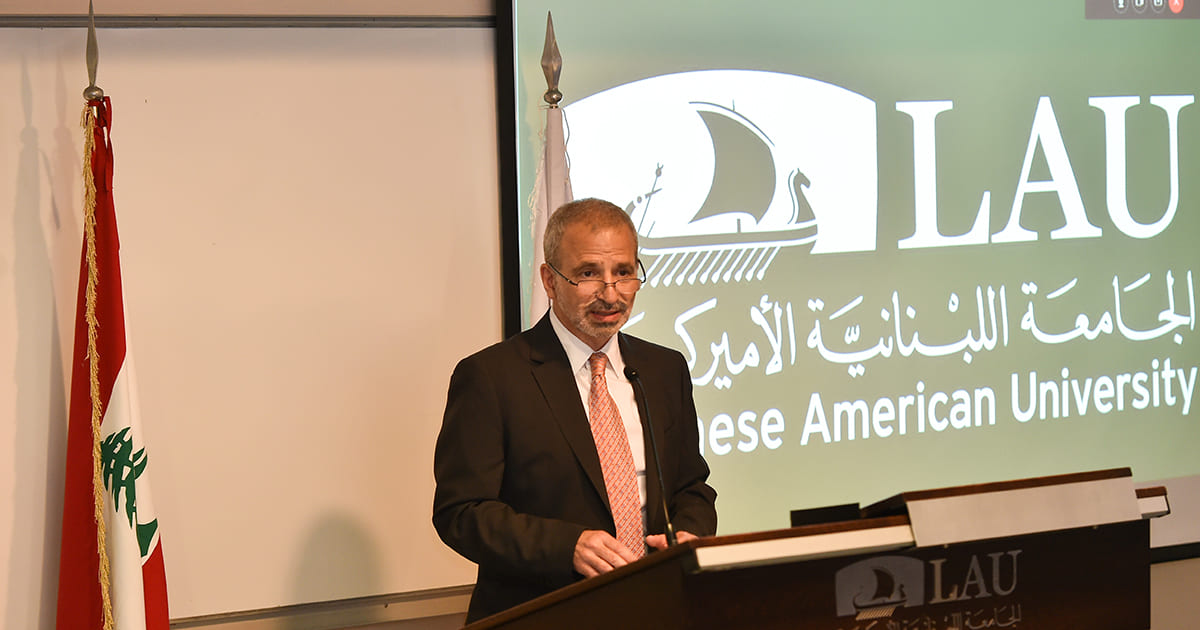
“When war tears apart communities, destroys ecosystems, and shatters economies, the instinct is often to rebuild quickly—to replace what was lost as fast as possible,” said Associate Professor and Chief Sustainability Officer Nadim Farajalla in his opening speech. But without a long-term vision grounded in resilience, he warned, “we simply rebuild fragility. We rebuild the conditions for future collapse.” Hence, he added, true recovery must integrate social justice, environmental stewardship, and sustainable development at every level.
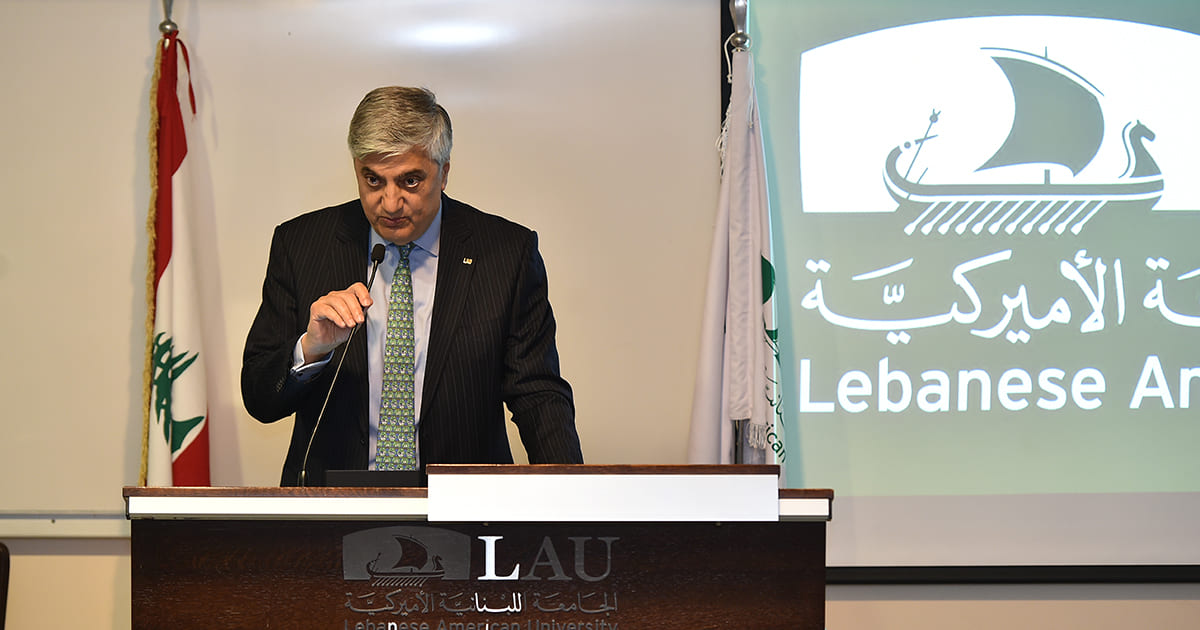
Echoing this call for thoughtful and future-focused rebuilding, LAU President Chaouki T. Abdallah emphasized that, “We can rebuild and repeat the mistakes of the past, or we can leverage new technologies, available resources, and our collective knowledge to build something better—while preserving the heritage we are justifiably proud of.”
The first day of the conference tackled the war’s impact on civilians and public health, affecting especially vulnerable groups like women, girls, disabled people, and migrant workers who have been “disproportionally affected due to the existing inequalities they faced,” said the Executive Director of the Arab Institute for Women at LAU Myriam Sfeir.
Dr. Jasmin Diab, director of the Institute for Migration Studies and assistant professor at LAU’s School of Arts and Sciences, shared her research on mental health responses among marginalized communities during the war, which revealed recurring themes of rootlessness and detachment, extending beyond anxiety and depression.
While NGOs and community initiatives have made efforts to address some of the internally displaced population’s mental health burdens, these remain unsustainable without structural support. Real progress demands “nationwide governmental involvement, from the explicit inclusion of all communities, to budgeting, awareness-raising, and the passage of supportive laws and policies,” noted Mia Atoui, co-founder and president of Embrace—a leading mental health NGO in Lebanon—and a psychosocial support specialist at UNICEF.
Dr. Fadi El-Jardali, director of the WHO Collaborating Center for Evidence and the Knowledge to Policy Center at the American University of Beirut, offered a concrete example of such institutional engagement. He highlighted the government’s current shift toward institutionalizing the relationship between academia and decision-making, particularly in promoting evidence-based policy formation. Universities, as research hubs, “should seize this opportunity to influence and inform public policy,” he added.
Building on this call for evidence-based leadership, Dr. Farajalla noted that “data-driven, inclusive, and visionary recovery—drawn from science, community voices, and international best practices—is key to moving forward.” His remarks came during the second day of the conference, which centered on recommendations for addressing the environmental degradation, agricultural disruption, food insecurity, heritage loss, and economic devastation caused by the war.
Tala Alaeddine, research department coordinator at Public Works Studio, underscored the power of data in her field by demonstrating how mapping the destruction of Lebanese heritage sites—including agricultural lands—during the war serves not only as a documentation tool, but also as a political act of resistance and accountability.
Panelists on war-induced environmental damage stressed the importance of adapting international models to Lebanon’s specific needs to inform evidence-based policies, infrastructure planning, and humanitarian response. Lamia Mansour, senior environmental specialist at the World Bank in Lebanon, referenced the LEAP project initiative—a stakeholder engagement plan aimed at assessing the broad impacts of the 2023–24 conflict and identifying sector-specific recovery priorities—as one such project that draws on lessons learned from countries that have faced similar disasters.
Reinforcing this localized approach, LAU Professor of Economics and Assistant Dean of Graduate Studies and Research Walid Marrouch called for a paradigm shift in governance—from passive player to proactive referee—through the adoption of environmental monitoring frameworks, integration of renewable energy into reconstruction efforts, and community-based land use planning to protect regrown forests and avoid a return to diesel dependency.
In exploring the path to economic recovery, the final series of discussions focused on Lebanon’s governing frameworks—past, present, and future. At the heart of the debate was UN Security Council Resolution 1701, framed as the country’s last viable chance for meaningful recovery. Originally adopted to end the 2006 conflict, the resolution calls for the withdrawal of Israeli forces, an arms embargo, the reassertion of Lebanese state sovereignty, and the creation of a buffer zone monitored by the Lebanese army and UNIFIL. But as author and former MP Farid El Khazen emphasized, Resolution 1701 must go hand in hand with good governance.
However, another perspective raised the stakes of implementation. Director of the Center for Policy Studies and former LAU Assistant Professor Makram Ouaiss cautioned that without a firm and sustained halt to Israeli hostilities across all of Lebanon, the resolution risks falling short of its intended impact. In his view, failure to ensure security on all fronts would only reinforce the argument for the continued presence of arms outside state control. In this sense, Resolution 1701 cannot stand alone; it must be accompanied by concrete measures to guarantee lasting peace and state authority.
Together, these insights offered a roadmap not just for rebuilding, but for reimagining Lebanon’s future with resilience and accountability at its core. Farajalla said that the conference is not a side project; “it lies at the heart of our mission: to ensure that our vision for sustainability extends far beyond our campus and into the heart of Lebanon’s future.”
